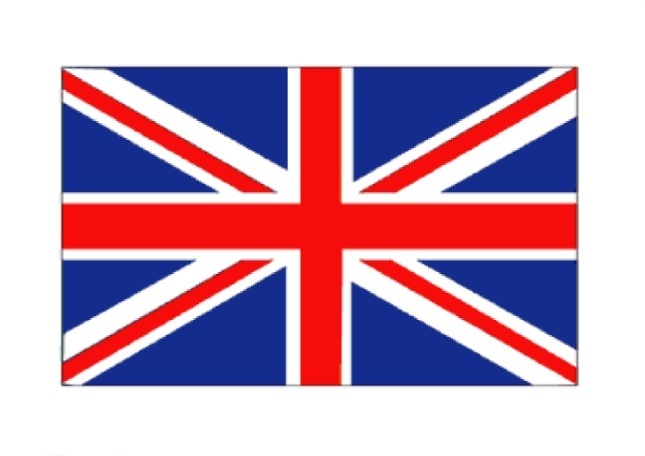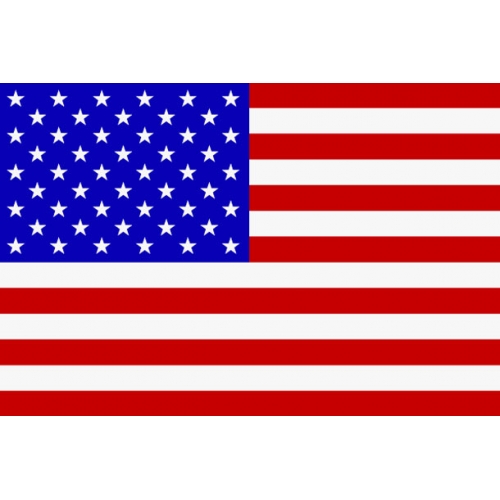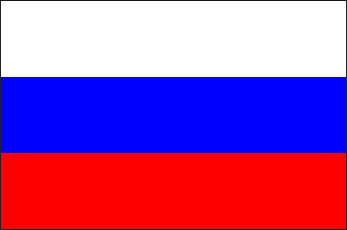- Преподавателю
- Иностранные языки
- Открытый урок на тему Моя идеальная школа (8 класс)
Открытый урок на тему Моя идеальная школа (8 класс)
| Раздел | Иностранные языки |
| Класс | 8 класс |
| Тип | Конспекты |
| Автор | Заболоцкая Н.С. |
| Дата | 23.02.2016 |
| Формат | docx |
| Изображения | Есть |
Урок-презентация "Идеальная школа" по английскому языку в 8-м «Б» классе
Тип урока: развитие и контроль умений и навыков по данной теме.
Дидактическая цель: систематизация речевых умений учащихся по теме средствами информационных технологий и Интернета через создание модели идеальной школы.
Цели по содержанию:
-
Образовательная: выявить уровень сформированности навыков устной речи по теме;
-
Развивающая: развивать познавательный интерес, коммуникативные умения систематизации имеющихся знаний;
-
Воспитательная: воспитывать толерантное отношение к системам образования различных стран.
Практические задачи:
-
Развитие умения говорить по изучаемой теме;
-
Контролировать систему знаний по теме средствами компаративного анализа;
Технология: личностно-коммуникативная, информационная.
Метод: системно-деятельностный.
Формы организации познавательной деятельности: фронтальная, индивидуальная, групповая.
Средства обучения: компьютер, видеопроектор, учебник О.В.Афанасьевой, И.В.Михеевой, Английский язык: Учебник для 8 класса школ с углубленным изучением английского языка, лицеев, гимназий, колледжей, - М.: Просвещение, 2005, материалы из Интернета, раздаточный материал.
Структура урока:
-
1 блок - целевой. Орг момент. Мотивация. Постановка задачи. Фонетическая зарядка. Речевая зарядка (10 минут).
-
2 блок - процессуальный. Показ функционирования языкового материала в различных видах речевой деятельности через систему личностно-ориентированных упражнений (30 минут).
-
3 блок - аналитический. Рефлексия и оценка учителя (5 минут).
Ход урока
Этапы урока
Деятельность учителя
Информационное
пространство
Деятельность
учащихся
I. блок.
1. Оргмомент.
2. Мотивация.
Целеполагание.
Приветствует детей.
Создает позитивный настрой на познавательную деятельность. Вместе с учащимися определяет цель урока.
Good afternoon! I`m glad to see you again. How are you? Are you OK! Are you fine! Oh, you look very pretty today. Wonderful. Well I see that all of you are in good mood. Meet our guests, please. Sit down, please. Look at the screen. (Видеоролик What makes a school good?) What did you understand?
Tell me please what we are going to speak about today. Ответы детей.
Open please your copybooks and write down the day and the date. The topic of our lesson is "A perfect school" who can tell me the task of the lesson?
-discuss the theme of the lesson
-to discuss the theme of the lesson what will we learn? Learn new words. Задачи урока.
Today we'll have a talk about the role of school in our life and about an ideal school for you and education in Russia and Great Britain and in America. Now please look at the blackboard you can see the expression on it. Let's read and try to understand it.
If all clever people were good, if all good people were clever, the world would be nicer than ever. Schools are the first step on the education way. They give pupils the opportunity to fulfil their talent. Do you agree that education is a key to a good future?
Answer the questions. If you have some difficulties to answer the questions, you can use the expressions from ex.46 p. 71 выражения на англ яз распечатки раздать. На доске выражения: I think…
I believe…
I suggest
In my opinion…
As for me…
…, I would like to ask you a question.
-
What is school for you?
-
Do you want to study in a perfect school?
-
Why do you want to study in a perfect school?
-
…., do you think that it is important to study in a modern building?
-
…, what subjects are you interested in?
-
Do you help each other with the homework?
-
Do you like to study?
Отвечают на вопросы учителя, высказывают свое мнение на тему роли образования в современном мире.
3. Фонетическая зарядка.
Учитель совершенствует фонетические навыки учащихся.
Let's revise some words on the topic 'Education' (see addition 1)
ученики повторяют звуки и слова за учеником, совершенствуя свои фонетические навыки.
4. Речевая зарядка.
Учитель осуществляет контроль лексических навыков учащихся в игровой форме. Объясняет правила игры.
What words can help us to describe different educational systems? Let's play a game 'Tick-tack-toe'.
(see addition 2)
Учащиеся выполняют инструкции учителя, пройденный лексический материал по теме через игру.
II. блок
5.Контроль умений устной речи.
Индивидуальная, парная работа.
Учитель предлагает учащимся в парах заполнить пропуски в таблице (каждая пара получает таблицу с одним пропущенным названием типа школы), контролирует знания учащихся по теме на примере одного из типов школ.
At the beginning of the lesson you took places, as you want. And now I want you to stand up and choose any of the papers. Now you have 2 minutes to classify and divide into 3 groups. As you want. And now we have 3 groups. Tell me please, how you chose the group. (по странам-картинки флагов стран ) Sit down, please. (we will choose/divide into groups/our groups according the flags of countries. ) Each of them has a text (a table). At home you had to read the texts about the education in different countries. Now you should work in groups. I suggest you to revise the information (You should revise the text )about the education in Russia, Great Britain and the USA. And fill in the table, be ready to tell your groupmates everything you know about education in diff countries according the table.
(text about the education in Russia and Britain)
Now working in pairs I suggest you to revise the information about different types of schools with the help of the table (see addition 3). Be ready to tell your groupmates everything you know about the missed type of school in your table and then ask questions about it. One of you speaks. (another one asks questions.)
Учащиеся работают в парах, заполняют пропуск в таблице, готовят мини-сообщение и вопросы остальным учащимся по нему. Затем слушают сообщения других учащихся и отвечают на вопросы по услышанному.
6. Развитие навыков устной речи.
Групповая работа.
Учитель делит класс на 3 группы, предлагает учащимся сравнить систему образования России и Великобритании, акцентируя внимание на преимуществах обеих (3) систем, с целью создания модели идеальной школы. Для мотивирования учащихся учитель отмечает на доске количество названных вариантов.
Now summing up our knowledge about education in diff countries different types of schools, let's try to name the main advantages of Russian and British educational systems. One team gives advantages of a Russian school, another one - British., and the 3rd group gives advantages of an American school.
Дети работают в группах и называют преимущества систем образования России и Великобритании,Америки стараясь опередить команду соперников.
7. Развитие умений устной речи по теме «Идеальная школа».
Индивидуальная работа. Групповая работа
Учитель просит учащихся рассказать об их представлении об идеальной школе на основе предложенной опорной схемы. Затем опрашивает одного или двух учащихся для примера.
You understand well that every educational system has its advantages.
And now we begin to build our ideal school.
It's time to make up the project.
Работа над мини-проектами.
Now, boys and girls, divide into groups of four, please. You will draw a poster and write your own proposals about a school your dream. Try to make up a model of your own ideal school.
Use the plan to be more concrete. Then we shall listen to your choice. Please, start your work !
Who is ready to start?
Защита проектов.
Каждый ученик составляет модель идеальной школы, пользуясь планом, затем один или два учащихся делают сообщение для всего класса.
III. блок.
Рефлексия и оценка урока.
Подведение итогов.
Запись домашнего задания.
Учитель подводит итоги урока, оценивает работу учащихся, дает домашнее задание.
Taking into consideration all the advantages of different schools, and having in your mind different models of ideal schools, could you tell if good education is a key to a successful future, why.
Подведение итогов урока. Объяснение домашнего задания. Рефлексия.
Dear children, you can see 4 quotations on the walls of our classroom. Read them. Can you translate. And now I want you to choose this sentence, that you like best of all. Think, please, why you choose this sentence.
Only the educated are free.
Epictetus
He, who opens a school door, closes a prison.
Victor Hugo
Educating the mind without educating the heart is no education at all.
Aristotle
Dear children! Thank you for your work at the lesson! I`ll give you good marks for your work. Your task is to write your own story about your ideal school.
Учащиеся отвечают на вопросы учителя, поставленные в начале урока. Записывают домашнее задание.








Tick-Tack-Vocab
(Крестики-нолики со словами)
1
2
3
4
5
6
7
8
9
Education in the USA (4)
Education in the United States of America is compulsory for children from the age of 6 till 16 (or 18). It involves 12 years of schooling. A school year starts at the end of August or at the beginning of September and ends in late June or early July. The whole school year is divided into three terms/trimesters or four quarters. American students have winter, spring and summer holidays which last 2 or 3 weeks and 6 or 8 weeks, respectively. Students go to school 5 days a week.
The American education system consists of 3 basic components: elementary, secondary and higher education. There is also such a notion as preschool education. At the age of 4 or 5 children just get acquainted with the formal education in a nursery school. The preschool education programme aims to prepare children for elementary school through playing and help them to acquire the experience of association. It lasts for one year. Then they go to the first grade (or grade 1).
Elementary education starts when pupils are 6 years old. The programme of studies in the elementary school includes the following subjects: English, Arithmetic, Geography, History of the USA, Natural sciences, Physical Training, Singing, Drawing, wood or metal work. The education is mostly concentrated on the basic skills (speaking, reading, writing and arithmetic). Sometimes children also learn some foreign languages, general history and such new subjects as drug and sex education. The main goal of elementary education is the general intellectual, social and physical development of a pupil from 5 to 12 or 15 years old.
Secondary education begins when children move on to high or secondary school in the ninth grade, where they continue their studies until the twelfth grade. The secondary school curriculum is built around specific subjects rather than general skills. Although there is always a number of basic subjects in the curriculum: English, Mathematics, Science, Social Studies and Physical Education, the students have an opportunity to learn some elective subjects, which are not necessary for everybody. After the first two years of education they can select subjects according to their professional interests. The electives are to be connected with the students' future work or further education at university or college. Every high school has a special teacher - a guidance counselor who helps the students to choose these elective subjects. Moreover, he helps them with some social problems, too. The elective courses are different in various schools.
Members of each grade in high school have special names: students in the ninth grade are called freshmen, tenth graders are called sophomores, eleventh graders are juniors and as for twelfth graders, they are seniors.
After graduating from high schools the majority of the Americans go on studying at higher education establishments. In universities they have to study for four years to get a bachelor's degree. In order to get a master's degree they must study two years more and, besides, be engaged in a research work.
Education in Russia
The Russian children usually start to go to school when they are seven years old. First the children learn at the elementary school. They visit the elementary school for four years. The children get there the elementary education. It means they learn to count, to read and to write. In the most schools the children also learn a foreign language beginning from the second form.
The fifth form means the beginning of the secondary education. The children learn different subjects, for example Biology, Literature, Chemistry, Physics, Informatics. In Russia the nine-year basic incomplete secondary education is compulsory. After that the children have to decide what they will do from now forth. On the one hand, they can continue their schooling and get the complete eleven-year secondary education. On the other hand, they can enter a college giving them the complete secondary education and trade training. After graduating from college the young people became financially independent and can start to work.
Currently there are different types of schools in Russia. The children and their parents can choose a regular school, a school with advanced study of some subject, a private school. Private schools in Russia are always fee-paying.
After graduating from school or college our young people can enter universities or institutes, where they get higher education.
Education in Britain
In England and Wales compulsory school begins at the age of five, but before that age children can go to a nursery school, also called play school. School is compulsory till the children are 16 years old.
In Primary School and First School children learn to read and write and the basis of arithmetic. In the higher classes of Primary School (or in Middle School) children learn geography, history, religion and, in some schools, a foreign language. Then children go to the Secondary School.
When students are 16 years old they may take an exam in various subjects in order to have a qualification. These qualifications can be either G.C.S.E. (General Certificate of Secondary Education) or "O level" (Ordinary level). After that students can either leave school and start working or continue their studies in the same school as before. If they continue, when they are 18, they have to take further examinations which are necessary for getting into university or college.
Some parents choose private schools for their children. They are very expensive but considered to provide a better education and good job opportunities.
In England there are 47 universities, including the Open University which teaches via TV and radio, about 400 colleges and institutes of higher education. The oldest universities in England are Oxford and Cambridge. Generally, universities award two kinds of degrees: the Bachelor's degree and the Master's degree.
Физкультминутка Татарская национальная игра «Кто быстрее?». Под музыку ученики танцуют вокруг стульев (число стульев на 1 меньше), когда останавливается музыка, дети должны сесть на стул, проигравший берёт билет со стола с вопросом и садиться за стол, где указана страна (GreatBritain, America, Russia ) по которому должен ответить на вопросы. После окончания игры ученики обсуждают в группе ответы и по - одному отвечают. (микс - пэа-шэа, реллиробин, таймд - пэа -шэа). (20 мин.)
1. When do British children start schooling?
2. When does compulsory school begin?
3. How long does a child stay in compulsory school?
4. What subjects do children learn in Primary School?
5. What kind of exam do students have to take when they are 16?
6. Do students have to leave school at the age of 16 or to continue their studies?
7. How do private schools differ from the regular ones?
8. How many universities are there in England?
9. What is the Open University?
10. What kinds of degrees do universities award?
At what age do American students start and finish their compulsory education?
2. How are the school years called in the United States?
3. What are the basic components of American education?
4. Do all children have to attend a nursery school?
5. When does elementary education start?
6. What is the main aim of elementary education?
7. The secondary school curriculum doesn't imply a number of basic subjects, does it?
8. What are elective subjects?
9. Who is a guidance counselor?
He, who opens a school door, closes a prison. Victor Hugo
Тот, кто открывает школьную дверь, закрывает тюрьму. Виктор Гюго
Only the educated are free. Epictetus
Только образованные свободны. Эпиктет
Educating the mind without educating the heart is no education at all. Aristotle
Воспитание ума без воспитания души - не воспитание вовсе. Аристотель
Countries
Russia
Great Britain
The USA
Types of schools (boarding schools, day schools, state schools….)
Grade system (years)
Fee (free of charge, expensive, partly)
Subjects
Scholarships/awards (what for?)


